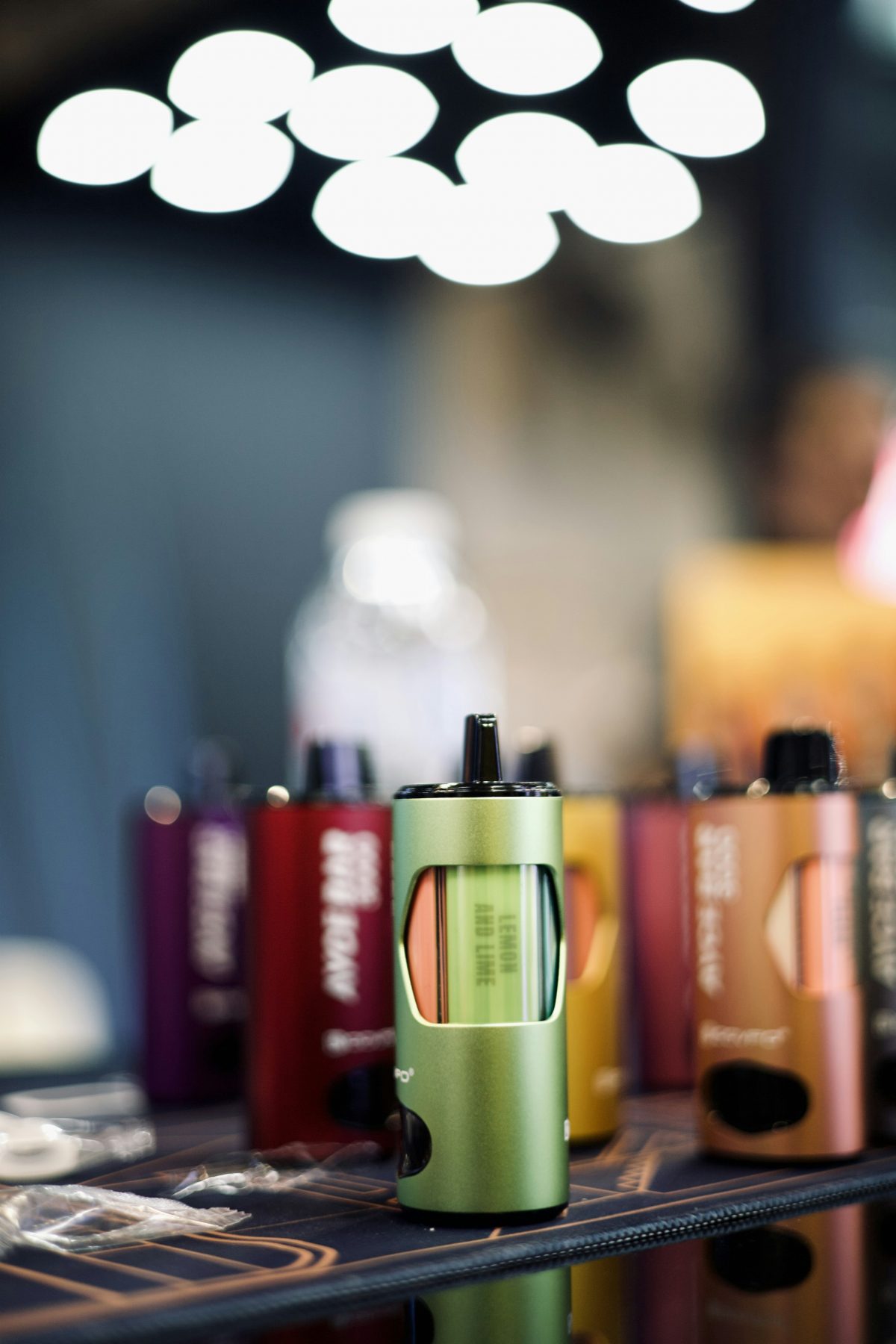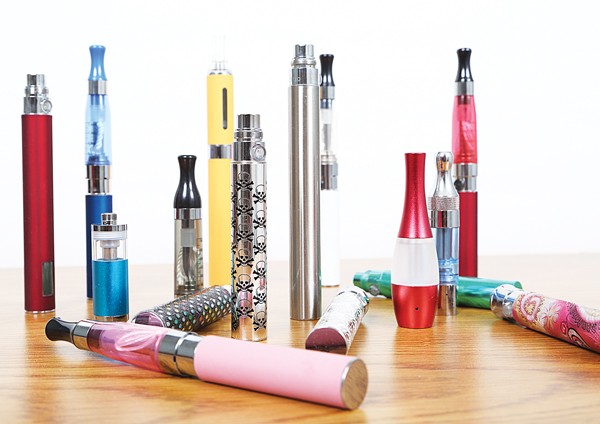 Pexels/Ruslan Alekso
Pexels/Ruslan Alekso
As the number of vaping-related lung illnesses continues to rise around the country, the Tennessee Department of Health (TDH) is recommending that Tennesseans avoid using e-cigarettes and other vaping products.
In Tennessee, there’s been 49 reported cases of vaping-related illnesses, according to the latest data from the Tennessee Department of Health (TDH). The department is updating this number here every Thursday at 3:30 p.m. Four of the 49 reported cases are in West Tennessee.
Shelley Walker, director of TDH’s office of communications and media relations, said the department is working with healthcare providers around the state to gather information about the cases. The goal is to collect information on specific components or brands of vaping products to find common factors which may reveal the source of the illness.
[pullquote-1]
“We continue to urge caution to Tennesseans who are using or considering the use of Juuls or other e-cigs,” Walker said. “For those trying to stop smoking, we recommend talking with a health care provider, using only FDA-approved smoking cessation products, and calling the Tennessee Tobacco QuitLine.”
The latest data from the Centers for Disease Control and Prevention (CDC) cites 1,299 reported cases of lung injuries related to vape or e-cig use across the country as of October 8th.
There have been 26 related deaths. The CDC reports that most of the affected patients report using a vape containing THC, or tetrahydrocannabinol, the psychoactive ingredient in cannabis.
However, the CDC does not yet know which specific chemical or chemicals are causing the lung damage, as no single product has been linked to all of the cases.
The Industry
A local vape store worries what all of this will mean for the industry — and ultimately its customers.
Clarissa Warren, director of operations for VaporWize, Memphis’ first vape store, believes that the products sold in the store’s locations (more than a dozen of them) are safe. Warren said everything VaporWize sells is USDA-regulated: “We’re not selling anything that’s harmful to people.”
Warren maintains that it’s been scientifically proven that vaping is a safer alternative to smoking. VaporWize sells over 400 different flavors of e-liquid and Warren said it’s these flavored liquids that has helped many adults quit smoking cigarettes.
“People don’t want to taste tobacco when they quit smoking cigs,” Warren said.
 VaporWize
VaporWize
She said President Donald Trump’s recent push to ban all flavored e-cigarettes is a “mistake.” The Trump administration announced last month that the FDA is in the process of creating a plan to remove flavored e-cigarettes from the market.
As a result, Warren said customers here have been buying more e-liquid than usual because they are concerned that “the thing that keeps them off cigarettes will be taken away.”
“People who are switching to vaping have been helped by this,” Warren said. “I have thousands of success stories. I’ve been a vaper for six years and I’ve been to the doctor less in those six years than I ever did when I smoked cigs for 20 years.”
A group of Tennessee healthcare organizations, led by the Tennessee Medical Association recently sent a letter to Gov. Bill Lee, urging him and the Tennessee General Assembly to “take a firm stance on this important public health issue by implementing an emergency temporary measure to restrict Tennessee youth from obtaining vaping products and encouraging the General Assembly to take more permanent legislative action when it convenes in 2020.”
Read the full letter below.
[pdf-1]
Warren agrees that e-cigs should be out of the hands of youth. This can be done by eliminating internet sales of the products, she said, and only offering the products in “reputable stores,” where customers must provide an ID and be 18 or older.
Although the CDC has not found a single common cause of the reported illnesses, Warren believes it’s the illegal cartridges that people are buying off the street that are dangerous.
[pullquote-2]
“The biggest problem is that people are labeling these deaths saying they were caused by vaping,” Warren said. “It’s not vaping. It’s not a legal product these people are dying from. It’s the illegal cartridges from someone who made it in their house. That’s the problem and it’s hurting our industry.”
For those who wish to continue smoking e-cigs, Warren said it’s important to only use products from legitimate vape shops in order to “make sure you’re getting the correct product that won’t do you harm.”
Street Vapes
 Dank Vapes
Dank Vapes
The Flyer spoke to a local man who sells what Warren would call illicit vapes. The vape dealer spoke on the condition of anonymity.
Among other THC products, he sells vape cartridges containing THC that he believes come from California. He’s sold about 100 this year, he said. They sell for about $50 a piece. The most common brand he sells is Dank Vapes, an unregulated brand whose products were recently found to contain contaminants in some cases.
Investigators in Illinois and Wisconsin found last month that 66 percent of patients with vape-related lung injuries in the two states reported using Dank Vape products. The investigators’s findings were published by the CDC.
They concluded that “Dank Vapes appears to be the most prominent in a class of largely counterfeit brands, with common packaging that is easily available online and that is used by distributors to market THC-containing cartridges.”
[pullquote-3]
The local dealer said he can’t be 100 percent sure that the cartridges he’s selling are pure and without additives: “It’s just trust.” But, if one of his customers does get sick, he said he’d close up shop.
“They could come back and get their money and I’d stop selling cartridges — point blank, period,” he said. “I don’t sell poison to my community. That’s why I sell what I sell and it’s some stuff I don’t mess with.”
Effects of Vaping
Dr. Catherine Sanders, a pulmonology physician at Le Bonheur Children’s Hospital, said smoking anything, especially something you don’t know the ingredients of, can have long term effects on the lungs.
“If you inhale anything into your lungs, you’re changing the cells of your lungs and your airways,” Sanders said. “So there’s always potentially adverse effects from that.”
Because vaping is relatively new, Sanders said there isn’t a lot of research that shows its long-term effects.
“We know that vaping can cause acute illnesses like we’ve seen, but what we don’t know much about the long-term effects of vaping yet because it’s so new,” Sanders said. “It’s important for the public to know that it’s so much the medical and science community don’t yet know about it. That’s scary. You really take a gamble if you continue to vape.”
[pullquote-4]
At this point, Sanders said it’s hard to definitively say if vaping is a healthier alternative to smoking regular cigarettes.
“It’s important to know that vaping is not a safe alternative to smoking, which it has been considered before,” Sanders said. “It’s not this great way to quit smoking or a better way to start. It could just be as harmful and young people especially need to know that.”
Sanders said there hasn’t been much research on vaping until the last couple of years is “just starting to pop up now.” Sanders said there is currently no research in Memphis that she aware of.
“There’s a big need for research now,” Sanders said. “I think we need to learn more about these products so we can educate the public on the potential consequences.”

 Cherie Moncada | Dreamstime.com
Cherie Moncada | Dreamstime.com  Pexels/Ruslan Alekso
Pexels/Ruslan Alekso  VaporWize
VaporWize  Dank Vapes
Dank Vapes  Cherie Moncada | Dreamstime.com
Cherie Moncada | Dreamstime.com